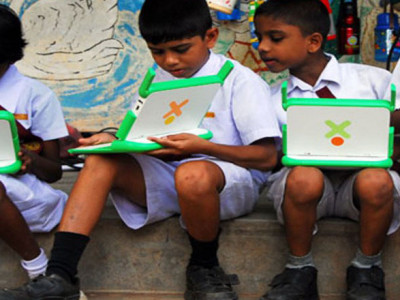(COLOMBO, LANKAPUVATH) –While Sri Lanka has reduced poverty successfully, the key concern for Sri Lanka is the vulnerability to risks arising from climate change, which could cost Sri Lanka 7.0 percent of GDP, according to a World Bank top official.
World Bank Country Director for Sri Lanka and the Maldives, Dr. Idah Pswarayi-Riddihough says depending on the level of vulnerability to natural disaster risk, Sri Lanka’s progress in eliminating poverty and raising standard of living can be undone by natural disasters.
The World Bank top official expressed these views while speaking at the inaugural ceremony of the Conference on Adaptive Social Protection in Sri Lanka on Tuesday at the Galle Face Hotel in Colombo. The high level conference organized by the World Bank under the theme “Building Resilience to Disasters and Climate Change” focuses on disaster risk with the aims to prepare Sri Lanka for natural disasters and climate change.
Sri Lanka in both 2016 and 2017 experienced severe floods and droughts. According to a recent World Bank report launched last week in Colombo, rising temperatures and changing monsoon rainfall patterns from climate change could cost Sri Lanka 7.0 percent of GDP and depress the living standards of nearly half the country’s population by 2050.”These events have an enormous impact on those who are directly affected, and the impacts are felt indirectly by all of us,” the World Bank Country Director says.
“We estimate that 5.7% of the population is at risk of falling into poverty if a shock reduced their income by 20%. By taking lives, destroying assets and interrupting business activities, disasters are quite capable of adding measurably to the number of poor.”
Dr. Pswarayi-Riddihough says Sri Lanka has put in place extensive programs to respond to disasters.The government and development partners are now increasingly able to forecast disasters and provide immediate assistance to those affected. However, more can be done to coordinate these efforts and ensure that disaster-affected households are supported until they fully recover.
According to the World Bank Country Director, this is where adaptive social protection can play a role.”Adaptive social protection comprises a series of measures to protect the poor and the vulnerable from disasters. These are measures to become more resilient as communities. Adaptive social protection is not just about money it is also about social assistance and services, such as cash transfers, social insurance, like pensions and disability benefits; and active labor market programs. If they are designed and run well, these programs can cushion the blow of unexpected losses such as those brought about by disasters,” she explained.
In her speech, Dr. Pswarayi-Riddihough said the information systems are playing an increasingly pivotal role worldwide in directing and coordinating governments’ responses to those in need.With support from the World Bank, Sri Lanka is developing a social registry, which is a database containing details on the needs and conditions of citizens. Although currently there are 35 programs implemented by 11 ministries, each is with its own rules and processes and no coordination, reducing their impact and efficiency.
She explained that a social registry can help various programs to determine who needs the most help in a systematic and objective way. The social registry can play a key role in responding to disasters, too, by helping the government and other agencies to identify who is affected, what their needs are, and what programs they already receive.
The two-day conference will hear representatives of countries that have taken on this challenge, using increasingly sophisticated social registry and welfare systems to provide rapid assistance to disaster-affected citizens. They will present their country models and reform experiences, and participants will discuss what can be taken from these models and adapted to the Sri Lankan context.”It is our hope that Sri Lanka can, in the years to come, lead the way for other countries by sharing its experiences developing and implementing a truly adaptive social protection system,” Dr. Pswarayi




